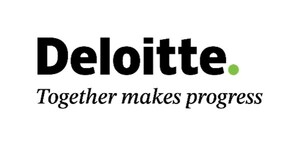
NEW YORK, Jan. 15, 2020 /PRNewswire/ -- The convergence of enterprise technology trends will continue to profoundly transform all businesses and unlock potential for innovation, Deloitte's Tech Trends 2020 report reveals.
The 11th annual report on technology trends captures the intersection of digital technologies, human experiences, and increasingly sophisticated analytics and artificial intelligence technologies in the modern enterprise. The report explores digital twins, the new role technology architects play in business outcomes, and affective computing-driven "human experience platforms" that are redefining the way humans and machines interact. Tech Trends 2020 also shares key insights and prescriptive advice for business and technology leaders so they can better understand what technologies will disrupt their businesses during the next 18 – 24 months.
"Technology is the number-one differentiator for businesses today and that will only accelerate in the years to come as even more powerful innovations take hold," said Scott Buchholz, emerging technologies research director and government and public services CTO at Deloitte Consulting LLP. "The most successful businesses today are combining cutting-edge technologies like machine learning and IoT with disruptive IT architecture and supercharged talent to create entirely new ways of working – and they already see the benefits."
And with organizations needing to adapt and respond quickly to ongoing technology disruption, Deloitte expects to see more IT and finance leaders working together to develop new flexible approaches for funding innovation at the speed of Agile.
The report's five trends of focus for 2020 include:
- Digital Twins - Bridging the physical and digital: As digital twin technology allows businesses to create increasingly sophisticated virtual models to optimize processes, products, and services, organizations will integrate IoT, machine learning, advanced computing infrastructure, and more to unlock entirely new business models.
- Architecture Awakens: Systems architecture will become a strategic priority as organizations redefine the architect role to be more nimble, responsive, and collaborative. Architects will work across the business and work creatively with non-technical project teams – forming a competitive differentiator in the digital economy.
- Ethical Technology and Trust: Organizations in every geography are realizing that their embrace of technology is an opportunity to gain – or lose – trust, and with it, customers' business and brand loyalty. CIOs will emphasize ethical tech in the coming years – and create processes to help solve ethical dilemmas related to disruptive technologies.
- Human Experience Platforms: To address the lack of connection humans often experience with daily digital interactions, a growing number of organizations are injecting emotional intelligence into their systems. These include AI capabilities such as machine learning and voice and facial recognition, which can better detect and appropriately respond to human emotions. The net result is emotionally intelligent human experiences that leverage connections between people, systems, data, and products.
- Finance and the Future of IT: As enterprises become more agile, financial operations will need to support new modes of working. That means CIOs and CFOs will need to explore how a new, flexible approach to enterprise finance¾across budgeting, contracting, capital planning, and more¾can redefine the future of tech innovation.
The report also provides a view of 11 years of trending the trends with insight into how trends evolve into table stakes over time, an update on the symbiotic benefits derived from the macro technology forces that serve as the foundation for business transformation, and a look at "what's next" beyond the near term.
"Technology is constantly in motion. Executives should take tomorrow's cues from today's trends. 'Horizon next' technologies are evolving out of today's core trends, sometimes in unexpected ways, giving rise to new opportunities," added Bill Briggs, Chief Technology Officer, Deloitte Consulting LLP.
"The trends of 2020 will disrupt entire industries and redefine business as we know it in the next decade, even as digital innovation becomes the norm for organizations of all sizes," said Buchholz. "Some of these trends may not come to fruition exactly as envisioned, but the technologies underpinning them will fundamentally change the way we work."
About Deloitte
Deloitte provides industry-leading audit, consulting, tax and advisory services to many of the world's most admired brands, including nearly 90% of the Fortune 500® and more than 5,000 private and middle market companies. Our people work across the industry sectors that drive and shape today's marketplace — delivering measurable and lasting results that help reinforce public trust in our capital markets, inspire clients to see challenges as opportunities to transform and thrive, and help lead the way toward a stronger economy and a healthy society. Deloitte is proud to be part of the largest global professional services network serving our clients in the markets that are most important to them. Now celebrating 175 years of service, our network of member firms spans more than 150 countries and territories. Learn how Deloitte's more than 312,000 people worldwide make an impact that matters at www.deloitte.com.
Deloitte refers to one or more of Deloitte Touche Tohmatsu Limited, a UK private company limited by guarantee ("DTTL"), its network of member firms, and their related entities. DTTL and each of its member firms are legally separate and independent entities. DTTL (also referred to as "Deloitte Global") does not provide services to clients. In the United States, Deloitte refers to one or more of the US member firms of DTTL, their related entities that operate using the "Deloitte" name in the United States and their respective affiliates. Certain services may not be available to attest clients under the rules and regulations of public accounting. Please see www.deloitte.com/about to learn more about our global network of member firms.
SOURCE Deloitte







Share this article